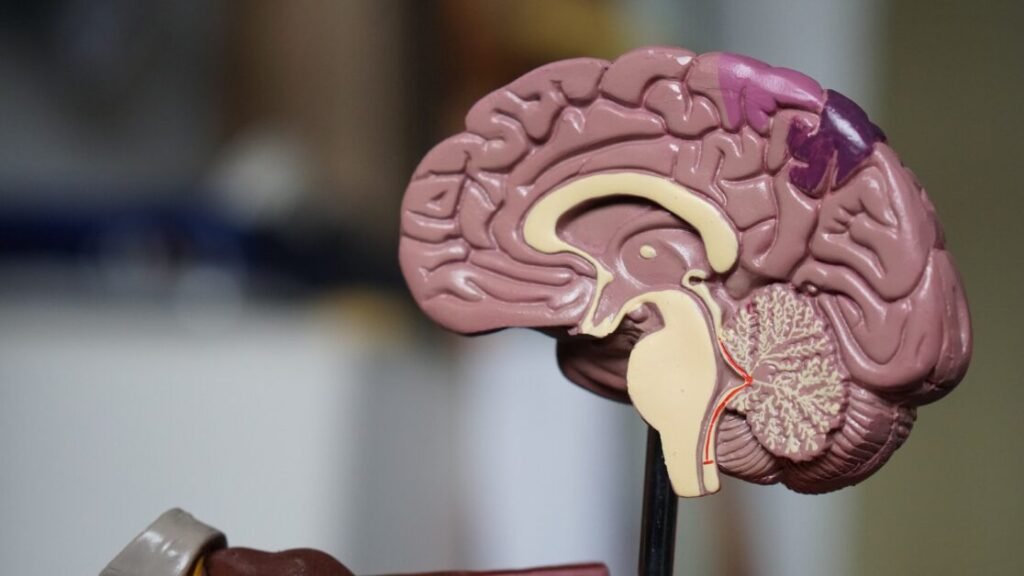Exploring the Effectiveness of Alternative Medicines
Have you ever wondered about the effectiveness of alternative medicines? At Alternative Medicine Facts, we are dedicated to unraveling the mysteries and exploring the potential benefits of alternative healing practices. With a strong belief in holistic wellness, we strive to provide you with reliable, evidence-based information to help you make informed decisions about your health. Join us on this journey as we delve into the world of alternative medicines and discover their true effectiveness in promoting overall well-being. 


Introduction to Alternative Medicines
Alternative medicines, also known as complementary and alternative medicine (CAM), refer to a diverse range of medical practices that are not widely accepted by conventional Western medicine. These practices often encompass traditional, holistic, or natural approaches to healthcare. Alternative medicines aim to address the physical, emotional, and spiritual aspects of an individual, promoting overall well-being. There are numerous types of alternative medicines, including herbal medicine, acupuncture, chiropractic care, homeopathy, naturopathy, and Ayurveda, among others.Importance of exploring alternative approaches to wellness
In recent years, there has been a growing interest in alternative medicines as people seek out different avenues for managing their health and well-being. One of the primary reasons for this shift is the recognition that not all health issues can be adequately addressed through conventional medicine alone. alternative approaches to wellness provide individuals with additional choices in their healthcare journey, empowering them to take an active role in their own healing process.Factors Influencing Effectiveness of Alternative Medicines
Individual variations and response
One crucial aspect to consider when exploring the effectiveness of alternative medicines is the individual variations in response. Each person’s body and health condition are unique, meaning that treatments that work for one individual may not necessarily work for another. It’s important to recognize that alternative medicines take a personalized approach, considering factors such as genetics, lifestyle, and emotional well-being. This individualized approach can increase the chances of achieving positive health outcomes.Quality and safety of alternative medicines
While alternative medicines offer potential benefits, it’s essential to carefully consider the quality and safety of these treatments. The lack of regulation in the alternative medicine industry can lead to variations in product quality, purity, and potency. It becomes crucial to choose reputable practitioners or suppliers who adhere to industry standards and provide safe and effective products. Research and education can help individuals make informed decisions about the quality and safety of alternative medicines.Placebo effect and psychosomatic healing
The placebo effect and psychosomatic healing play significant roles in the effectiveness of alternative medicines. The placebo effect refers to the phenomenon where a person experiences a perceived improvement in their condition simply due to their belief in a treatment’s efficacy, whether or not the treatment has any physiological effect. This effect is particularly common in alternative medicine practices, where the mind-body connection is emphasized. Additionally, alternative medicines often aim to promote psychosomatic healing, recognizing the interplay between the mind and body in achieving overall wellness.Evidence-based Research on Alternative Medicines
Current state of research on alternative medicines
While alternative medicines have been practiced for centuries, the field still faces challenges in terms of rigorous scientific research. The current state of research on alternative medicines is mixed, with varying levels of evidence supporting their effectiveness. Some alternative medicine practices, such as acupuncture and herbal medicine, have a more extensive body of research supporting their use in certain conditions. However, it’s important to note that the research landscape is continuously evolving, and new studies are regularly being conducted to explore the efficacy of alternative medicines.Limitations and challenges in studying alternative medicines
Studying alternative medicines can be complex due to various limitations and challenges. One significant challenge is the difficulty in conducting double-blind, placebo-controlled trials – the gold standard for evidence-based medicine – in certain alternative medicine practices. Additionally, financial limitations, limited funding, and skepticism from the scientific community can also hinder the progress of research in this field. Despite these challenges, ongoing efforts are being made to establish reliable research methodologies that can be applied to alternative medicine practices.
Alternative Medicines and Common Health Conditions
Alternative medicines for pain management
Alternative medicines offer alternative approaches to pain management, especially for individuals who may want to avoid or minimize the use of pharmaceuticals. Practices such as acupuncture, massage therapy, and chiropractic care have shown promise in providing relief for various types of pain, including musculoskeletal pain, migraines, and chronic pain conditions. These non-invasive and drug-free treatments focus on addressing the underlying causes of pain and promoting the body’s natural ability to heal.Alternative medicines for mental health disorders
Mental health disorders are increasingly prevalent in today’s society, and alternative medicines can play a complementary role in their management. Practices such as meditation, mindfulness, and yoga have been shown to reduce stress, promote relaxation, and improve overall mental well-being. Additionally, certain herbs and supplements, such as St. John’s Wort and omega-3 fatty acids, have demonstrated potential benefits in treating mild to moderate depression and anxiety. Alternative approaches to mental health can provide individuals with additional tools for self-care and emotional support.Alternative medicines for chronic diseases
Alternative medicines also offer potential approaches to managing chronic diseases, which often require long-term care and support. Practices such as naturopathy and Ayurveda focus on holistic treatment plans that consider the underlying causes of chronic diseases, rather than simply addressing symptoms. These approaches may involve dietary adjustments, lifestyle modifications, herbal remedies, and other interventions to support the body’s Natural Healing processes. While alternative medicine practices should not replace conventional medical care, they can complement and enhance one’s overall treatment plan.Case Studies and Personal Experiences
Success stories and testimonials from alternative medicine users
Many individuals have reported positive experiences and improved health outcomes through the use of alternative medicines. Success stories and testimonials often highlight the personalized approach, reduced side effects, and improved quality of life associated with alternative medicine interventions. These accounts emphasize the importance of individualized treatments and the potential benefits of exploring alternative approaches to wellness. However, it’s critical to approach these stories with caution and recognize that individual experiences may vary.Critiques and failures of alternative medicine interventions
While there are success stories, alternative medicines also face criticism and failures. Some individuals may not experience the desired outcomes or may even encounter adverse effects. Skeptics argue that the benefits observed in alternative medicine practices may be attributed to placebo effects or natural healing processes that would have occurred regardless of the treatment. These critiques highlight the need for rigorous research and evidence-based approaches to validate the effectiveness of alternative medicines.
Regulation and Safety of Alternative Medicines
Government policies and regulations on alternative medicines
Regulation and safety considerations are important aspects of alternative medicines. Government policies and regulations vary from country to country, with some nations implementing strict guidelines for the manufacturing, labeling, and advertising of alternative medicine products. These regulations aim to protect consumers from potential harm and ensure that products meet certain safety, quality, and efficacy standards. Individuals interested in using alternative medicines should familiarize themselves with their country’s specific regulations to make informed decisions.Safety concerns and risks associated with alternative medicines
While alternative medicines generally have good safety profiles, it’s important to be aware of potential risks and safety concerns. Adverse reactions and interactions with other medications or medical conditions can occur, especially when individuals self-administer alternative medicine treatments without appropriate guidance. Additionally, the lack of standardized dosages and quality control can pose risks. It is crucial for individuals to consult with qualified practitioners and share their complete medical history to minimize potential risks and ensure safe and effective use of alternative medicines.Cultural and Traditional Considerations
Alternative medicines in different cultures and traditions
Alternative medicines often have deep roots in various cultures and traditions worldwide. Traditional Chinese Medicine (TCM), for example, incorporates practices such as acupuncture, herbal medicine, and tai chi, which have been passed down through generations. Likewise, Ayurvedic medicine originated in ancient India and focuses on balance and harmony among body, mind, and spirit. Different cultures and traditions have developed their unique approaches to healthcare, offering alternative medicine practices that reflect their respective philosophies and beliefs.Integration of alternative and conventional medicine practices
The integration of alternative and conventional medicine practices has gained recognition as a way to provide comprehensive care. Integrative medicine combines evidence-based treatments from both conventional and alternative medicine, taking into account the best available research and individual patient preferences. This approach acknowledges the strengths of different healthcare systems and encourages collaboration between practitioners for the benefit of the patient. By bridging the gap between conventional and alternative medicine, individuals can access a broader range of treatment options and make informed decisions that align with their values and needs.Education and Training in Alternative Medicines
Certification and accreditation for alternative medicine practitioners
Education and training are vital components in ensuring the safe and effective practice of alternative medicines. Many alternative medicine practitioners undergo rigorous certification and accreditation processes to demonstrate their competence and knowledge in their respective fields. These processes may vary depending on the specific practice and the country of practice. The recognition of qualified practitioners can provide individuals with confidence in the qualifications and expertise of their chosen alternative medicine provider.Scientific literacy and critical thinking in alternative medicine
Scientific literacy and critical thinking are essential when considering alternative medicines. Individuals should cultivate the ability to critically evaluate claims and research related to alternative medicine to make informed decisions about their healthcare. Scientific literacy empowers individuals to understand the limitations of research methodologies, assess evidence, and recognize the potential biases and conflicts of interest that may exist. By fostering scientific literacy and critical thinking skills, individuals can navigate the complex landscape of alternative medicines and ensure their decision-making is based on reliable information.Cost and Accessibility of Alternative Medicines
Affordability and insurance coverage for alternative medicine treatments
The cost and affordability of alternative medicine treatments can vary depending on the practice and the country of implementation. Some treatments, such as herbal remedies or dietary adjustments, may be more affordable compared to others, such as acupuncture or chiropractic care. Insurance coverage for alternative medicine treatments also varies, with some insurance plans providing partial or full coverage for specific practices. However, it’s important to note that not all insurance providers cover alternative medicines, necessitating out-of-pocket expenses. Accessibility and affordability remain key considerations when individuals explore alternative medicine options.Availability and accessibility of alternative medicine practices
The availability and accessibility of alternative medicine practices can differ depending on geographical location and cultural acceptance. In some countries, alternative medicine practices are well-integrated into healthcare systems, with dedicated clinics, practitioners, and educational programs. However, in other areas, access to alternative medicines may be limited, requiring individuals to seek out specialized providers or travel to receive specific treatments. The availability of alternative medicine practices can impact an individual’s ability to explore and benefit from these treatment options.Conclusion
Alternative medicines present diverse approaches to wellness and have the potential to complement conventional healthcare practices. However, the effectiveness of alternative medicines is influenced by various factors, including individual variations in response, the quality and safety of treatments, and the placebo effect. Scientific research on alternative medicines is ongoing but faces challenges due to study limitations and skepticism. Alternative medicines can be utilized for pain management, mental health disorders, and chronic diseases, but it is essential to consider both success stories and critiques. Regulations and safety measures help protect consumers, while cultural and traditional considerations recognize the rich heritage and diversity of alternative medicine practices. Education and training play a crucial role in ensuring the competence of alternative medicine practitioners and promoting scientific literacy among individuals. The cost and accessibility of alternative medicines vary, emphasizing the importance of exploring options and making informed decisions. Ultimately, alternative medicines offer individuals the opportunity for personalized, holistic approaches to healthcare, empowering them to actively participate in their well-being.







